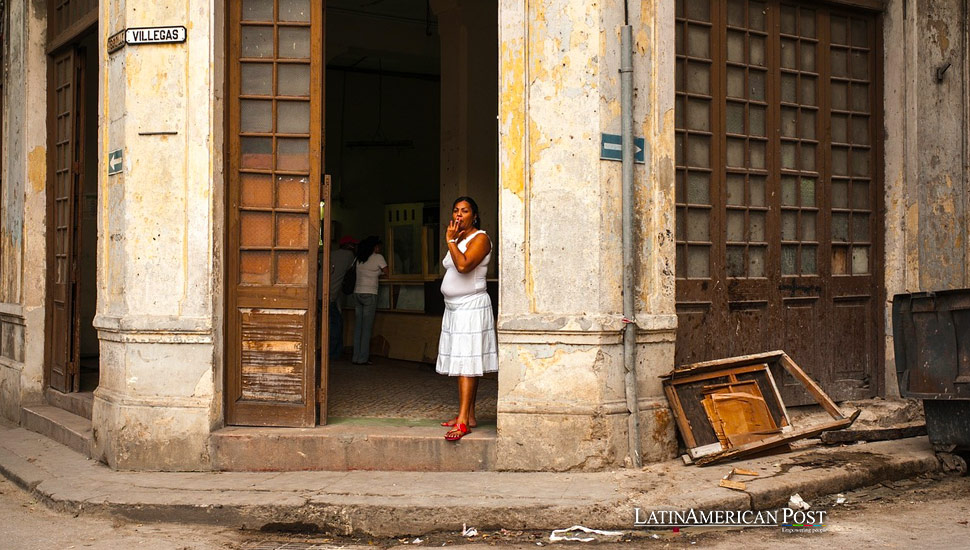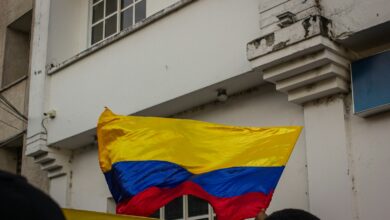México, Honduras, Bolivia, and Brazil Call for End to U.S. Embargo on Cuba

Delegations from Brazil, Mexico, Honduras, and Bolivia have called for an end to the United States’ economic and commercial embargo on Cuba during the 54th General Assembly of the Organization of American States (OAS) in Paraguay.
At the 54th General Assembly of the Organization of American States (OAS) held in Paraguay, the delegations of Brazil, Mexico, Honduras, and Bolivia collectively demanded the termination of the longstanding U.S. economic and commercial embargo against Cuba. This embargo has persisted for over six decades and continues to be a contentious issue within the inter-American community.
Cuba, which has shown no interest in rejoining the OAS even after the 2009 revocation of the 1962 resolution that excluded it, once again became a focal point of the assembly’s deliberations. The delegations of these Latin American countries voiced strong opposition to the embargo, highlighting its detrimental impact on the Cuban population and regional relations.
“The economic embargo against Cuba must end now,” declared Joel Antonio Hernández, Mexico’s Undersecretary for Multilateral Affairs and Human Rights, addressing the assembly’s plenary session. He condemned the unilateral actions imposed in violation of international law and United Nations resolutions, which he argued are hindering the development of nations in the region.
Echoing similar sentiments, Brazil’s Secretary-General for Foreign Affairs, María Laura da Rocha, denounced the coercive measures that penalize the populations of regional countries. She labeled the embargo against Cuba as unjust. She criticized the island’s inclusion on a unilateral list of countries promoting terrorism, emphasizing Cuba’s active role in fostering peace, dialogue, and regional integration.
Bolivia’s stance was equally firm. “We categorically reject any unilateral and unjustified labeling of one state by another,” stated Héctor Arce, Bolivia’s representative to the OAS. He condemned the inclusion of Cuba on the list of countries that support terrorism and opposed economic, commercial, and financial blockades intended to incite political changes by depriving populations of essential resources.
Historical Context and Current Dynamics
Cuba’s complex relationship with the OAS and the United States traces back to the early 1960s when it was excluded from the organization during the Cold War era. The embargo, initially imposed by the U.S. in 1960, was subsequently tightened, severely restricting Cuba’s ability to engage in international trade and access financial systems. Over the years, numerous countries and international organizations have criticized the embargo for its adverse humanitarian impacts.
The Cuban government has consistently maintained that the embargo is a significant barrier to its economic development, affecting various sectors, including healthcare, education, and infrastructure. Despite political changes and periods of thawing relations, particularly during the Obama administration, the embargo has remained mainly in place.
During the OAS assembly, the representative from Honduras, Roberto Ramos Bustos, described the embargo against Cuba as a violation of international principles and norms, particularly those enshrined in the OAS Charter. He underscored his government’s opposition to unilateral measures and blockades, irrespective of political or ideological differences, asserting that such actions are detrimental to the progress of relations within the hemisphere.
“My government reiterates its opposition to measures that hinder the progress of relations among member states in this hemisphere,” Bustos stated, describing the embargo as “iniquitous and archaic.”
The collective call for the end of the embargo reflects a broader sentiment in Latin America, where many nations view the policy as an outdated relic of Cold War-era politics that continues to inflict unnecessary suffering on the Cuban people. This sentiment is compounded by a shared history of colonialism and external intervention, fostering a regional ethos that values sovereignty and self-determination.
Regional Implications and Future Prospects
The stance taken by Brazil, Mexico, Honduras, and Bolivia at the OAS assembly signals a strong regional pushback against U.S. foreign policy toward Cuba. This collective demand for lifting the embargo aims to alleviate the economic hardships faced by Cubans and foster a more inclusive and cooperative regional environment.
María Laura da Rocha highlighted the implications of maintaining the embargo, suggesting that such policies undermine efforts to build a peaceful and integrated Latin America. By championing Cuba’s cause, these countries also advocate for a more balanced and fair approach to international relations within the Americas.
As the assembly concluded, the calls for ending the embargo were left hanging in the diplomatic corridors, awaiting concrete action. The persistence of the blockade continues to be a point of contention, reflecting deep-seated geopolitical dynamics. However, the unified stance of these Latin American nations demonstrates a growing momentum towards re-evaluating and potentially reshaping policies that have long governed inter-American relations.
Also read: Mexico’s President-elect Claudia Sheinbaum Promises No New Taxes
The 54th OAS General Assembly in Paraguay highlighted a significant moment of solidarity among Latin American nations against the U.S. embargo on Cuba. The passionate appeals from Brazil, Mexico, Honduras, and Bolivia underscore a regional desire for change and justice, advocating for policies that support development and integration rather than division and hardship. As the debate continues, the hope remains that these calls to end the embargo will eventually lead to meaningful action and a brighter future for Cuba and the region.





